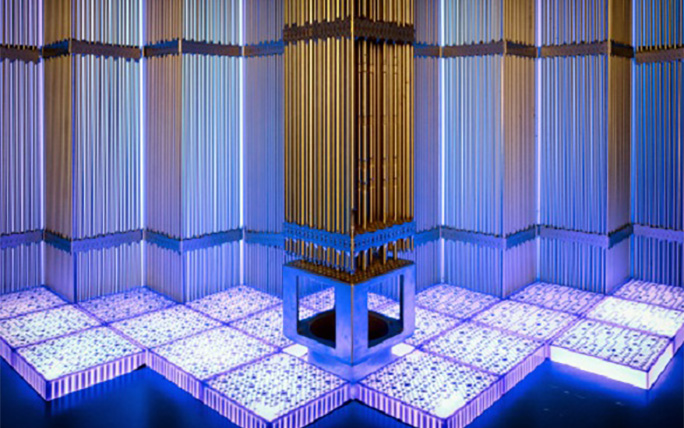Liverpool leads £1.17M innovative future MSR reactor project

The University of Liverpool has been awarded £1.17 million from the Engineering and Physical Sciences Research Council (EPSRC) to lead a collaborative project to explore a new, more sustainable and more economic nuclear technology for the UK.
The new technology is based on Molten Salt Reactors that do not require expensive solid fuel production and a highly complex fuel cycle. This makes them ideal for a disruptive solution for closed fuel cycle operation using an innovative approach to operate on spent nuclear fuel (currently declared as waste) that is capable of releasing up to a factor of 100 times more energy.
The project is the first step towards establishing a UK ‘zero-power’ experimental facility for reactor research which will be a low-cost, low-risk approach for more rapid development of new nuclear systems.
The project, which also involves the Universities of Lancaster and Manchester and several national and international industrial partners as advisors, will be led by Professor Bruno Merk who holds the Royal Academy of Engineering Chair in Emerging Technology at the University of Liverpool.
Professor Merk said: “This is the first step for molten salt reactor technologies development in the UK. Zero-power reactors are needed step to open a new reactor R&D programme and test the technologies in a safe setting, while delivering validation for codes and first safety demonstrations for the regulator.”
QUASAR Group leader Professor Carsten P Welsch, who will coordinate the work across the nuclear, particle and accelerator physics clusters and their experience in detector design and Monte Carlo simulations, added: “This innovative project will make a real contribution to the molten salt reactor design. We are looking forward to pioneering this new technology with our project partners in a truly interdisciplinary study.”
The researchers will use advanced modelling and simulation tools to produce a design for a zero-power reactor experiment for molten salt reactors. This work will be supported by an experimental program to determine the thermo-physical properties of the future fuel material to thus improve simulation results, as well as performing social science studies.